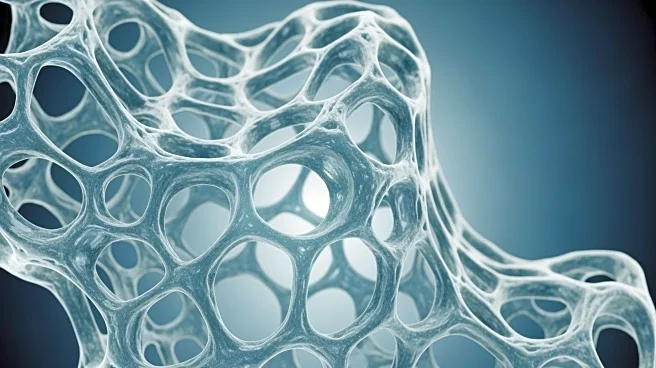What's Happening?
Researchers at the University of Basel have successfully recreated a complex human bone marrow model in the laboratory using human cells. This breakthrough marks a significant advancement in the field, as it offers a realistic platform for studying blood
cancer and testing drugs. The model replicates the human endosteal niche, a critical microenvironment in bone marrow linked to blood cancer resistance. The development involved using pluripotent stem cells and an artificial bone scaffold to produce a diverse range of bone marrow cell types. This innovation aims to reduce reliance on animal experiments and enhance personalized treatment options for blood cancers.
Why It's Important?
The development of a human bone marrow model is crucial for advancing research in blood cancer and other hematological conditions. By providing a more accurate representation of human biology, this model can improve the understanding of blood formation and disease mechanisms, potentially leading to more effective treatments. It also aligns with efforts to reduce animal testing, offering a more ethical and precise approach to medical research. The model's ability to support drug development and personalized medicine could revolutionize treatment strategies, offering tailored therapies based on individual patient profiles.
What's Next?
Future steps include refining the bone marrow model to support drug testing and personalized treatment decisions. Researchers aim to create patient-specific models to test therapies and identify the most effective options for individuals. This approach could significantly enhance treatment outcomes for blood cancer patients. Additionally, further improvements are needed to scale down the model for drug testing purposes, allowing simultaneous evaluation of multiple drugs or doses. Continued research and development will focus on optimizing the model's size and functionality to expand its applications in medical research.
















